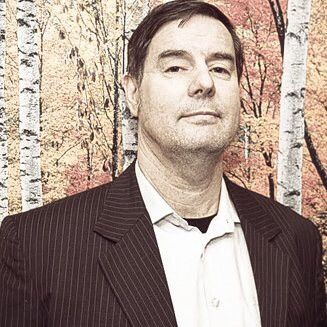
Category: business – Page 266




Google’s latest AI experiments let you talk to books and test word association skills
Google today announced a pair of new artificial intelligence experiments from its research division that let web users dabble in semantics and natural language processing. For Google, a company that’s primary product is a search engine that traffics mostly in text, these advances in AI are integral to its business and to its goals of making software that can understand and parse elements of human language.
The website will now house any interactive AI language tools, and Google is calling the collection Semantic Experiences. The primary sub-field of AI it’s showcasing is known as word vectors, a type of natural language understanding that maps “semantically similar phrases to nearby points based on equivalence, similarity or relatedness of ideas and language.” It’s a way to “enable algorithms to learn about the relationships between words, based on examples of actual language usage,” says Ray Kurzweil, notable futurist and director of engineering at Google Research, and product manager Rachel Bernstein in a blog post. Google has published its work on the topic in a paper here, and it’s also made a pre-trained module available on its TensorFlow platform for other researchers to experiment with.
The first of the two publicly available experiments released today is called Talk to Books, and it quite literally lets you converse with a machine learning-trained algorithm that surfaces answers to questions with relevant passages from human-written text. As described by Kurzweil and Bernstein, Talk to Books lets you “make a statement or ask a question, and the tool finds sentences in books that respond, with no dependence on keyword matching.” The duo add that, “In a sense you are talking to the books, getting responses which can help you determine if you’re interested in reading them or not.”

12 Futuristic Technologies That Could Become Reality in 2018
In the last year, the business and consumer markets alike have seen the release of advanced technologies that were once considered the stuff of science fiction. Smart gadgets that control every facet of your home, self-driving vehicles, facial and biometric identification systems and more have begun to emerge, giving us a glimpse of the high-tech reality we’re moving towards.
To find out which futuristic technologies are on the horizon, we asked a panel of YEC members the following question:




Wizebit: Machine Learning expert Peter Morgan joins our team
Wizebit is proud to welcome Machine Learning guru Peter Morgan to its elite team of blockchain specialists and developers.
Peter is the author of the popular report, “Machine Learning is Changing the Rules: Ways Businesses Can Utilize AI to Innovate”, and brings years of real world experience designing, building, and implementing AI and IP networks for Cisco, IBM, and BT Labs.
As the first company to create a confidential smart assistant on the blockchain, Wizebit officially launched in 2018 with the mission of allowing personal data to be connected while remaining protected.

Your Body Is a Teeming Battleground
It’s time to rethink the quest to control aging, death, and disease—and the fear of mortality that fuels it.
I went to medical school, at least in part, to get to know death and perhaps to make my peace with it. So did many of my doctor friends, as I would find out. One day—usually when you’re young, though sometimes later—the thought hits you: You really are going to die. That moment is shocking, frightening, terrible. You try to pretend it hasn’t happened (it’s only a thought, after all), and you go about your business, worrying about this or that, until the day you put your hand to your neck—in the shower, say—and … What is that? Those hard lumps that you know, at first touch, should not be there? But there they are, and they mean death. Your death, and you can’t pretend anymore.
I never wanted to be surprised that way, and I thought that if I became a doctor and saw a lot of death, I might get used to it; it wouldn’t surprise me, and I could learn to live with it. My strategy worked pretty well. Over the decades, from all my patients, I learned that I would be well until I got sick and that although I could do some things to delay the inevitable a bit, whatever control I had was limited. I learned that I had to live as if I would die tomorrow and at the same time as if I would live forever. Meanwhile, I watched as what had been called “medical care”—that is, treating the sick—turned into “health care,” keeping people healthy, at an ever-rising cost.